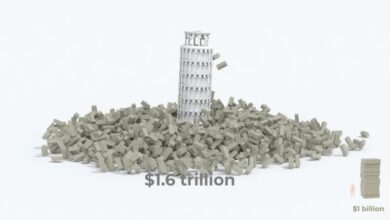Fitch’s stamp: Kuwait’s robust ‘AA-’ rating, stable outlook shines
The agency explained that the ratio of total government debt to gross domestic product is expected to increase to 11% of GDP in the fiscal year 2025-2026 and even more in the coming years

-
Fitch Ratings expected that Kuwait’s general budget, excluding government investment income, would return to recording a financial deficit of 5% of the GDP during the current fiscal year
-
The agency expected the general budget to record a deficit of 6.5% in the fiscal year 2024-2025 and 10% in the fiscal year 2025-2026
The Central Bank of Kuwait announced that Fitch Ratings has confirmed the sovereign rating of the State of Kuwait at (AA negative) with a stable outlook. This affirmation is supported by strong financial conditions and an exceptionally robust external balance.
The central bank, in a statement to Kuwait News Agency (KUNA), added that the most prominent contents of the Fitch report highlight the rating’s limitations due to heavy reliance on the oil sector and the substantial size of the public sector, which may be challenging to sustain in the long term. Additionally, the report points out factors hindering efforts to address ongoing financial and economic stagnation, as well as delays in approving legislation related to financing sources and debt issuance permits.
It was stated that Fitch commented on the financial and economic reforms in the State of Kuwait, emphasizing that the new government is technocratic. Its work program for the years 2024-2027 includes initiatives to enhance non-oil revenues, restructure support, and encourage private sector participation in creating job opportunities for Kuwaitis while reducing the financial burden. The program also includes a new liquidity bill allowing the relaunch of debt issuances after the previous authorization expired in 2017.
The central bank stated that regarding the government debt ratio, Fitch Ratings explained that the ratio of total government debt to GDP remains low at 3.1 percent in the fiscal year 2023-2024. However, it is expected to increase to 11 percent of GDP in the fiscal year 2025-2026 and even more in the coming years, assuming the liquidity law is passed in the next fiscal year. This projection takes into account limited public financial control and low oil prices.
Regarding the public financial situation, the agency expected, according to the report, that the state’s general budget, excluding government investment income, would return to recording a financial deficit of 5 percent of the gross domestic product during the current fiscal year. This comes after recording the first financial surplus in the fiscal year 2022-2023 a decade ago, which amounted to 12 percent of GDP.
According to the report, the agency expected the general budget to record a deficit of 6.5 percent in the fiscal year 2024-2025 and 10 percent in the fiscal year 2025-2026. This projection is driven by the decline in oil prices, ongoing public spending pressures, and limited progress in public finance reforms.
The agency identified the most important factors that could lead to a downgrade of the country’s sovereign credit rating. This would occur if signs of increased pressure on the liquidity of the General Reserve Fund emerge, and if there is no adoption of a new liquidity law or alternative measures by the government to ensure its continued fulfillment of obligations. This includes, for example, no limitation of debt service.
It stated that the rating could also be lowered if the financial and external conditions are significantly affected due to the continued decline in oil prices or the inability to address the structural drain on the state’s public finances.
It considered that improving the rating is possible once signs emerge of the state’s ability to confront long-term financial challenges through measures to implement a clear plan to reduce the deficit in the general budget, enabling it to withstand the decline in oil prices. Additionally, adopting a transparent and sustainable government financing strategy is crucial.













